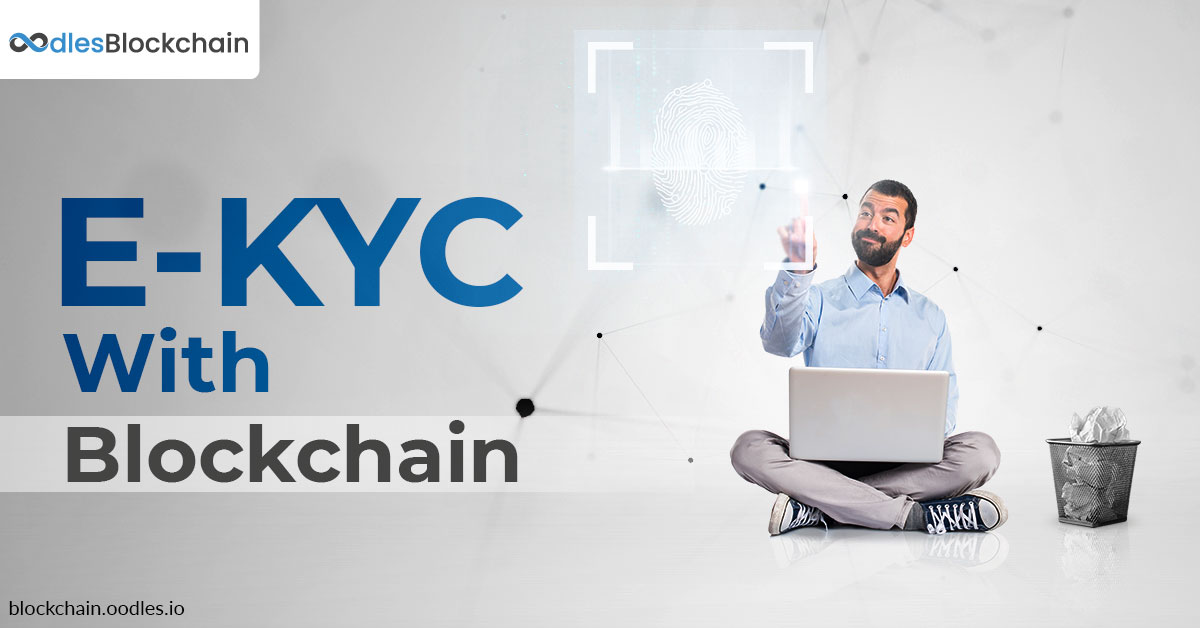-
There are various challenges associated with a centralized architecture implemented for KYC processes. Indeed, a centralized KYC platform and architecture enables a single point of failure of the server. It often results in significant downtime. A centralized architecture is always under the control of an administrator with access to confidential customer information databases. It is contrary to recent legislation. For instance, GDPR (General Data Protection Regulation) implies prohibiting the holding of such large pools of personal information centrally. GDPR proposes the idea of enabling each individual to give consent and agree to participate in data exchange. Generally, centralized architectures use third parties to establish trust among stakeholders. It creates a dependency on third parties to form a trusted system.
Blockchain is emerging as a technology that can efficiently digitize the KYC compliance process and benefit businesses and customers.
Also Read: Blockchain in Insurance: Enabling New Opportunities
Blockchain for e-KYC Platform
Essentially, a permissioned blockchain KYC solution enables customers to have complete access and control over their data. They can be confident that nobody can share this data with any other actors unless they permit them. They can revoke access permissions at any time, while a blockchain solution immutably stores all associated activities for records.
Advantages and Features
Using a blockchain-based KYC solution provides several advantages. For instance, it ensures the immutability of data and enhances privacy controls for users. Also, it facilitates a shared ledger for transparent, real-time authentication and verification of processes/transactions/records (provides access to accurate data across the network).
Also Read: Digitizing AML/KYC Compliance with Blockchain
A blockchain-powered KYC application’s self-sovereign model enables customers to create and manage their digital identities securely and efficiently. Users can grant permission to multiple participants to access need-to-know basis data from a single platform.
Such an application reduces data duplication, fraud, costs, and more. It does so by eliminating the need for each financial institution to attest and update KYC records for a user. Also, with permission-based data access, the chances of data privacy and security issues become negligible.
Expected Key Features | Blockchain e-KYC Application
- No centralized system. Only permissioned participants of the network can access and share data.
- Enable the deployment of regulatory and supervisory observer nodes.
- Only parties associated with a KYC process will validate the actions rather than a broader pool of unrelated validators.
- Provides an explicit link between human-language composed legal documents and smart contract code, ensuring efficient digitization of KYC processes.
Also Read: Is Blockchain the Right Underlying Technology for Digital KYC
Developing a Blockchain e-KYC Platform
A blockchain-powered decentralized model supports the idea of handing KYC ownership back to consumers. It is essentially a distributed network, leaving no single point of failure. Instead of having a centralized administrator as the server, it promotes decentralization. It also adheres to the regulatory and compliance requirements of GDPR. With permission-based data access, it reduces the risk of data privacy and security challenges. It provides risk managers, business developers, and legal professionals a reliable and efficient way to validate their customers with a single easy-to-use platform. With such an integrated platform, customers only do their KYC process once and have it in their wallet ready. They further access whatever exchange, payment, or other services they like without friction.
Connect with our blockchain development experts for more information and development insight

Our Offices
INDIA
Emaar Digital Greens, Sector 61,
Gurugram, Haryana
122011.
Welldone Tech Park,
Sector 48, Sohna road,
Gurugram, Haryana
122018.














